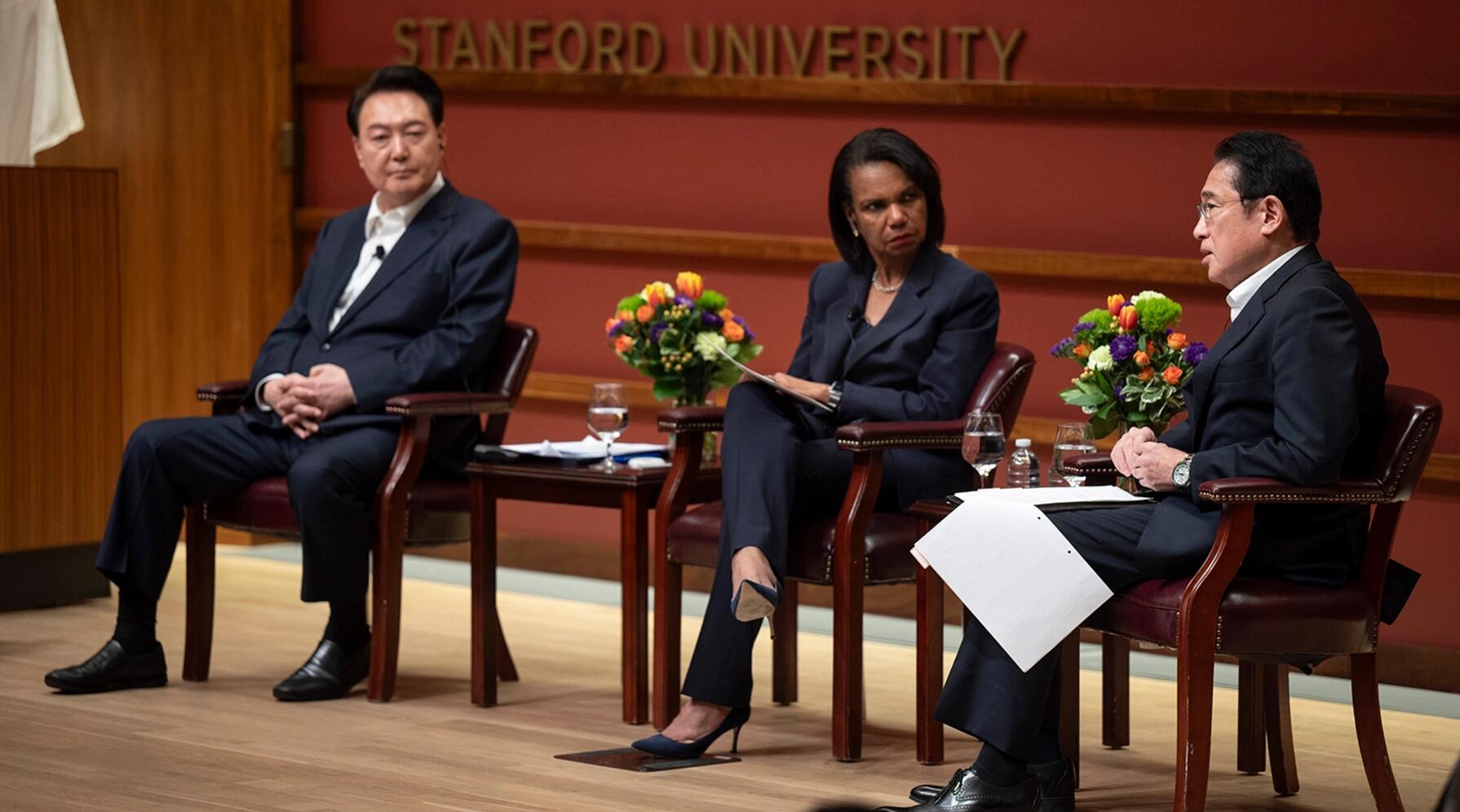Insider Brief
- Japanese Prime Minister Kishida Fumio and South Korean President Yoon Suk Yeol discussed cooperation on quantum tech, clean energy and innovation.
- The event was held at Stanford University.
- Critical Quote: “If there is one element missing, there will be no innovation. New ideas emerge through a multi-layered exchange between diverse people.” — Japanese Prime Minister Kishida Fumio
PRESS RELEASE — The future of clean energy, quantum technology, and innovation were among the topics of discussion between Japanese Prime Minister Kishida Fumio and South Korean President Yoon Suk Yeol at an event held at Stanford University.
The historic meeting, which took place on Nov. 17 during the last day of the Asia-Pacific Economic Cooperation (APEC) summit, was hosted by the Walter H. Shorenstein Asia-Pacific Research Center (APARC), the Freeman Spogli Institute for International Studies (FSI), and the Hoover Institution. It was one of seven convenings between the two leaders this year to strengthen bilateral relations between their countries. Such a meeting would have been unthinkable just over a year ago because of decades of tense relations. Since Yoon and Kishida took office, they have taken steps towards rapprochement and building trust that their predecessors could not achieve.
“We at Stanford are deeply honored to be hosting these two leaders on the same stage for another historic chapter in relations between their two countries,” said Michael McFaul, the director of FSI, in his opening remarks.

Condoleezza Rice, the Tad and Dianne Taube Director of the Hoover Institution, moderated the discussion, which centered around innovation and the future of science and technology.
“Democratic allies need very much to discuss both the challenges and the opportunities that technologies bring,” said Rice, who served as the 66th secretary of state of the United States.
The event was one of several visits that saw dignitaries from Asia visiting the Stanford campus while they were in the Bay Area for the APEC summit in San Francisco.
Calls for Collaboration
Balancing the risks and opportunities of technology was a recurring theme during the discussion between the leaders of Japan and South Korea, with each of them calling for increased collaboration and cooperation among countries with shared values.
“In the field of science and technology, no one country alone can drive innovation that will change the world,” said Kishida in his opening remarks.
For example, Kishida said, various countries now contribute key elements to innovations such as semiconductors, quantum computing, and generative AI.
“If there is one element missing, there will be no innovation,” Kishida said. “New ideas emerge through a multi-layered exchange between diverse people.”
The Walter H. Shorenstein Asia-Pacific Research Center is part of the Freeman Spogli Institute for International Studies
If you found this article to be informative, you can explore more current quantum news here, exclusives, interviews, and podcasts.















